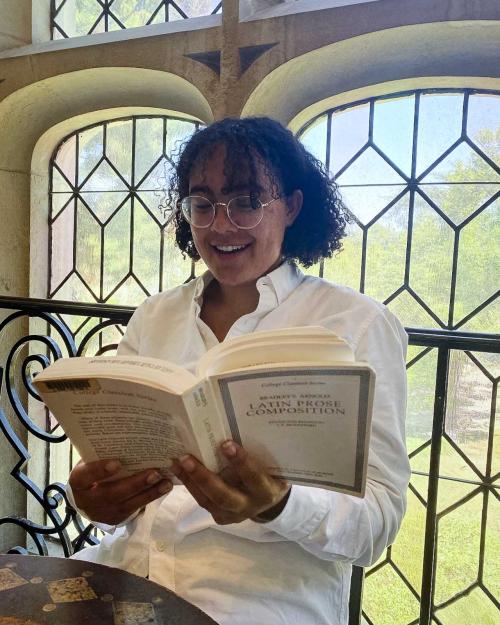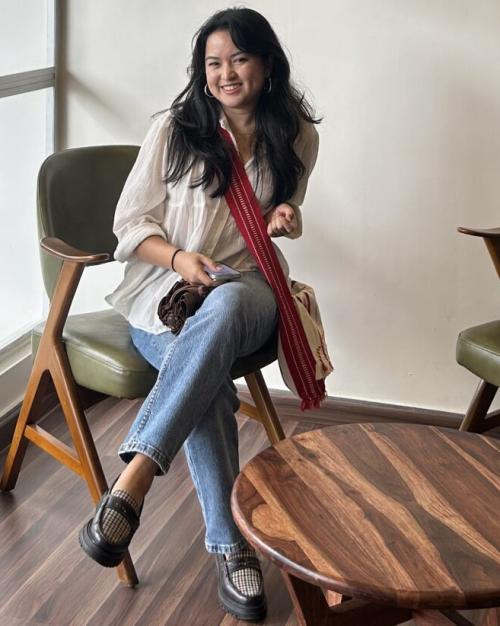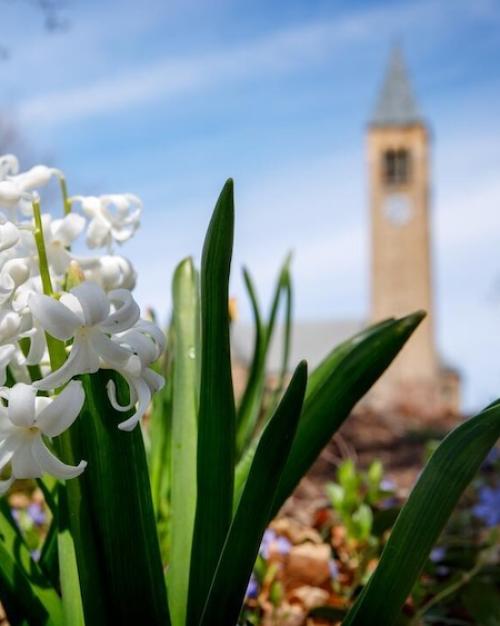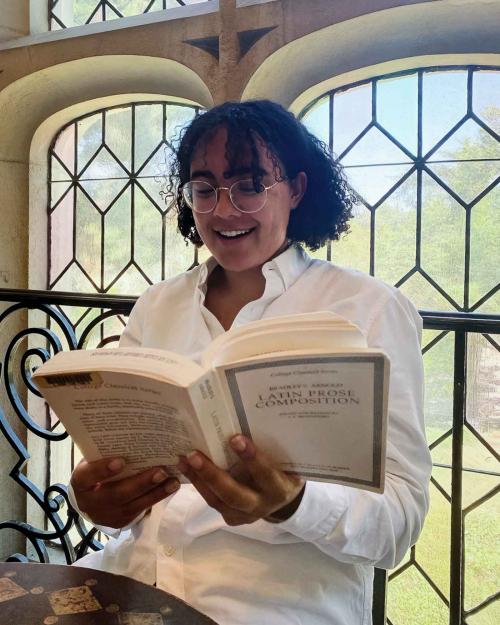Kim Montpelier
Classics & Philosophy
Washington, D.C.
Why did you choose Cornell?
Mostly for the ice cream and the fact that Kurt Vonnegut went here. But also because I knew that I wanted to study classics and I thought that the faculty in the classics department here were doing really exciting things (there aren't many places where you can take a class in spoken Latin!).
What is your main extracurricular activity and why is it important to you?
I was involved in the Prison Reform and Education Project, because of which I became a tutor for people incarcerated in Westchester. I learned a lot through this experience, both about teaching and about the obstacles that people in prison face (especially obstacles to education) while they are incarcerated and after they get out of prison.
What Cornell memory do you treasure the most?
I took a day hiking P.E. class in the spring semester one year. On the first day of class there was a big snowstorm, and I was hoping that the class would be cancelled. It wasn't. I was expecting a cold, wet, miserable day outside, but instead it was a lot of fun. It was cold but beautiful, and in a really different way than the way that other seasons are beautiful. That was my first winter in Ithaca and it taught me to love it for what it is.
What are the most valuable skills you gained from your Arts & Sciences education?

I learned how to ask the right questions when you are confused about something. When I first started at Cornell, I found that I often had to do readings that were so hard to understand that I didn’t even know what I was confused about or what to ask to gain clarity. Throughout my time at Cornell, I was taught how to construct questions and what kinds of questions to ask to get closer to the truth.
What have you accomplished as a Cornell student that you are most proud of?
I am pretty proud of my two theses. One is on friendship in Augustine’s Confessions and one is on materialism in the works of the 17th century philosopher Margaret Cavendish. These are the most substantial research projects that I’ve done so far, and through them I’ve learned the joy of feeling like you’ve made intellectual progress in your understanding of something after a lot of work.
How have your beliefs or perspectives changed since you first arrived at Cornell?
Before I came here, I felt that a lot of the friends I had thought of the world in a very similar way to me. When I got here, I met people who were from a lot of different places and had a lot of different ways of thinking about the world. I realized that I shouldn’t take my approach to things for granted, even with my friends. It’s easy to assume you already know what someone’s going to say, but even people who we know really well can surprise us in really beautiful ways.
Every year, our faculty nominate graduating Arts & Sciences students to be featured as part of our Extraordinary Journeys series. Read more about the Class of 2024.




